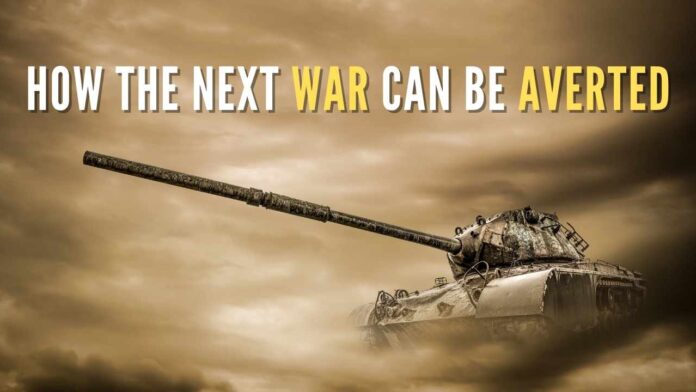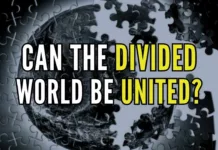
The Russia-Ukraine war teaches the world several lessons
- It’s easy to start a war but difficult to stop, even if many major countries, including the ones involved in the war, want to stop.
- The on-ground war may be between 2 countries, but the real opposite sides of the war could be some other countries.
- The ego and irrational exuberance of some countries, including the smaller of the warring countries, could be at the centre of wars. But all the countries, those, directly and indirectly, involved, would believe they had no choice as the other side was a threat to them. And all the countries could be partly right.
- Wars between just 2 countries could easily start having major adverse global implications in the long term.
- There may well be no winners in wars; everyone, including those who may not be involved in the war in any way, could lose in some ways.
- The main winners of wars will usually be manufacturers of defence (?) supplies. They have vested interests in wars and usually lobby for the start of wars and their continuance.
- Countries that claim victory in a war could really be very bad sufferers.
- Common people, even from countries not directly involved in a war, could be the worst sufferers. The poor will suffer badly, and their meager wealth will get eroded. The human tragedy of wars, esp of children, the old, and the sick, will be very high.
- All assumptions about wars will change in unforeseeable ways during the course of the wars, regardless of how big think tanks were involved in their planning. So, the outcomes of wars and sanctions are very unpredictable.
- The defence budgets of most countries will increase after wars, and the budgets of other productive sectors will suffer as a consequence.
- The UN is an impotent body and is no more than a 9-star coffee house. It appears to have no role in preventing or stopping wars and has no meaningful future in its current format.
- Wars can be best stopped before they start, then after. Because, after a war starts, both sides take maximalist positions, which will not be conducive to any settlement.
Though many superpowers are involved in the Russia-Ukraine war, directly and indirectly, it is to the credit of all the countries involved, that they have not allowed it to spiral into a nuclear/ world war. But some missteps somewhere, involving the egos of some leaders, and we still can’t rule out a nuclear/ world war.
The role of the ICJ (International Court of Justice) is to settle, in accordance with international law, legal disputes submitted to it by the countries and to give advisory opinions on legal questions referred to it by authorized UN organs and specialized agencies.
UN resolutions and judgments of ICJ are unlikely to resolve major conflicts between countries because they have to ultimately rule in favour of one side, and the other side has no compulsion to accept them, and no one can enforce such judgments.
We desperately need some mechanism to prevent wars in the future, in the interest of humanity.
Mediation may be a better mechanism to resolve disputes between countries because instead of ruling in favour of one side, mediation could result in a ‘give and take’ approach for both sides, with the help of a set of friendly mediators; so, both sides may not lose face. Mediation is not final and binding and has no legal validity, but that is what will make it flexible and more easily acceptable to both sides.
Unfortunately, we don’t have any formal international mediation forum to resolve disputes between countries.
India has recently set up its first International Arbitration and Mediation Centre (IAMC) in Hyderabad, primarily to settle international commercial disputes[1]. India, with its broad acceptability, across the world, can try to extend the scope of IAMC to mediate between countries, on an experimental basis. If successful, such a body could be formed under the aegis of the UN. This could be one more step in the direction of India becoming a Vishwa Guru.
Since medications are not made based on laws, but by bringing the disputing sides to reach a mutually acceptable compromise, well-trained individual mediators (preferably of some eminence), not necessarily lawyers, should be able to resolve disputes between countries. We have a good base of trained mediators including some judges of the high courts. We also have a large base of retired diplomats of eminence, who understand international relations better, and who could be trained to be mediators between countries.
As we have already seen, it is more easily possible to avert wars before they are started. So, mediation between countries can be initiated by either the countries that are in dispute, or their well-wishers, or countries that could be more adversely impacted by war between them.
The benefit of averting wars, some of which could spiral into nuclear/ world war, is immeasurable.
Note:
1. Text in Blue points to additional data on the topic.
2. The views expressed here are those of the author and do not necessarily represent or reflect the views of PGurus.
References:
[1] India’s first International Arbitration and Mediation Centre opens in Hyd – Dec 18, 2021, Business Standard
PGurus is now on Telegram. Click here to join our channel and stay updated with all the latest news and views
For all the latest updates, download PGurus App.
- How BJP can get 33%+ vote share in TN - April 1, 2024
- A transparent, equitable electoral funding alternative - March 19, 2024
- How TN BJP can come to No. 1 or No. 2 in 2024 LS polls - January 11, 2024










